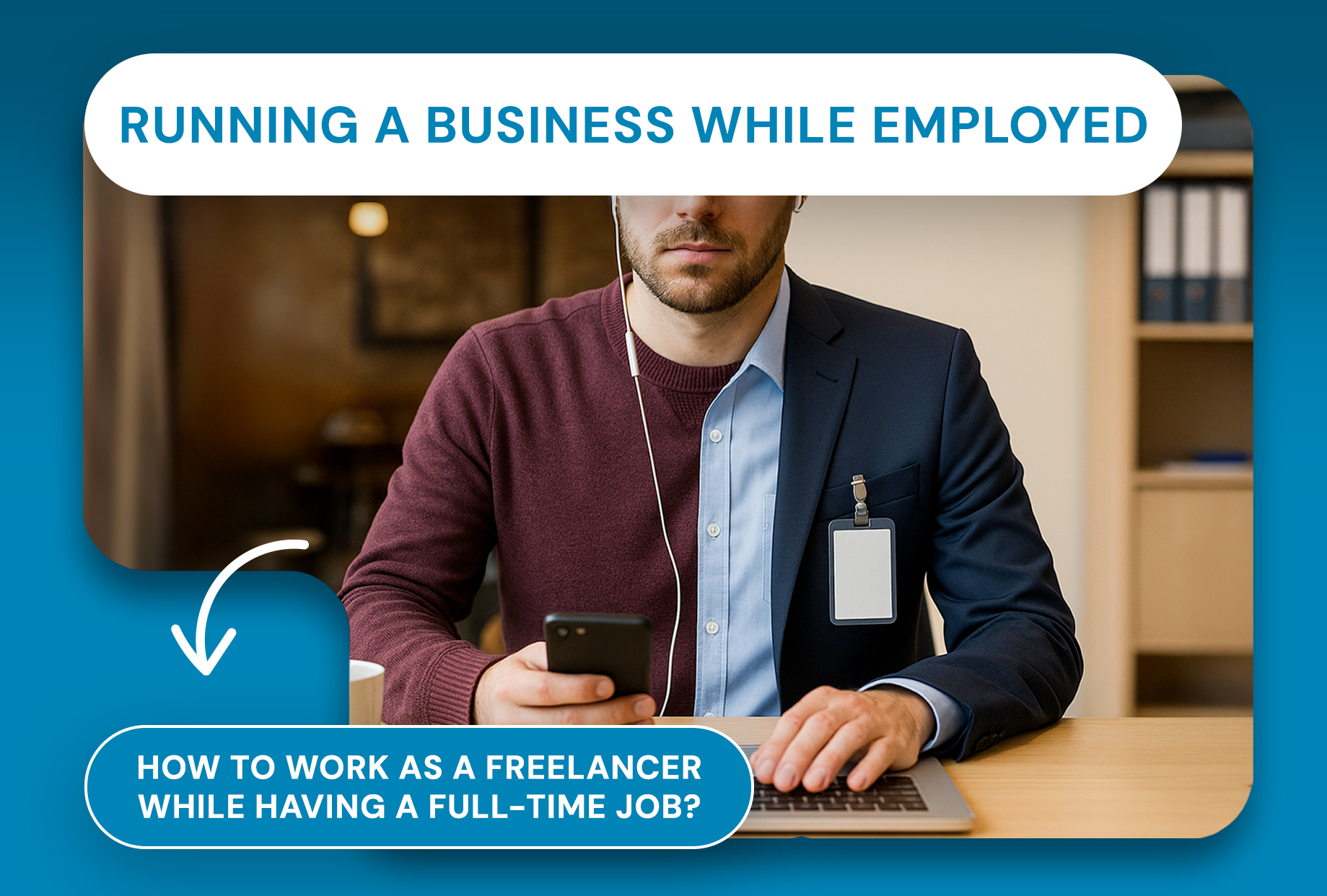RUNNING A BUSINESS WHILE EMPLOYED: WHAT YOU NEED TO KNOW BEFORE YOU START
Author: Mgr. Veronika Kaplanová, 27. 10. 2025


Do you have a great idea in mind and want to turn it into your own business? Did you know that you can run a business alongside your employment? In the Czech Republic, this is relatively common practice, but it necessary to follow several key legal and practical rules. Failing to comply with these rules may ultimately lead to the termination of your employment by your employer. Below, we bring you an overview of the most important steps to follow when combining employment and entrepreneurship.
Employer’s consent
The basic question is whether you will need your employer’s approval to start a business. The answer depends on the nature of your business, the scope of your employer’s activities, and whether you are employed in public administration or civil service.
You need prior written consent from your employer in the following cases:
- if your business activity overlaps with your employer’s line of business,
- if you are employed in public administration or civil service.
In all other cases, you can run your business alongside your job without restrictions.
You also don’t need your employer’s consent when engaging in self-employed activities that fall within your employer’s line of business if they are of a scientific, pedagogical, journalistic, literary, or artistic nature.
Even in situations where formal consent is not required, being transparent and fair with your employer can prevent misunderstandings and concerns about a potential conflict of interest.
How to proceed if I need my employer’s consent?
We recommend submitting your request in writing. This request should specify the area of your business, the expected time commitment, and most importantly, it should provide assurance that you will not use your employer’s know-how or resources.
In short, you need to reassure your employer that your business activities won’t cause them any harm. Running your own business should never lead to potential misuse of information obtained through your employment or create a conflict of interest between you and your employer. The same principle applies to company resources, such as laptops, software, or the employer’s contact database.
Revocation of employer’s consent
It is important to note that the consent once given may be revoked by the employer at any time, provided it is done in writing and with proper justification. In such a case, you’ll need to bring your business activities to an end without unnecessary delay.
Running a business without employer’s consent
If you do not follow the above procedure and fail to obtain the necessary employer’s consent, it may have serious consequences.
This constitutes a breach of labour law regulations and you may face termination of your employment. If your conduct cause damage to your employer, they may also demand compensation.
Non-compete clause after employment ends
In cases where you enter into a non-compete agreement with your employer, you may be restricted in your business activities even after the termination of your employment. Under a non-competition clause, the employee undertakes that for a certain period (a maximum of 1 year) they will refrain from engaging in business or dependent work that would be identical to the employer’s business activities, in return for which the employer pays the employee appropriate financial compensation. The employee’s obligation is usually secured by a contractual penalty.
We therefore recommend proceeding cautiously in such cases to ensure your business does not breach the non-compete obligation.
Need Help? We’re Here for You.
Not sure how to proceed? Want to be certain you’re doing everything correctly? At MACEK.LEGAL, we are happy to help you with the legal aspects of your business. We provide full legal service for your business so you can focus on what you enjoy most – running your business.
#non-compete clause #business and employment #starting a business #Labour Code
#Business and employment #Non-compete clause #Starting a business
Recommended articles
GENERAL PRODUCT SAFETY REGULATION (GPSR): A PRACTICAL OVERVIEW OF NEW OBLIGATIONS FOR ENTREPRENEURS
The EU’s General Product Safety Regulation (GPSR) tightens the rules for placing goods on the European market and affects manufacturers, importers, distributors and online marketplace operators… More
ELECTRONIC DELIVERY SAVES EMPLOYERS HASSLE
A Labour Code amendment enables employers to deliver certain employment documents electronically—for example by email or via messaging apps This requires the employee’s prior written consent, a… More
